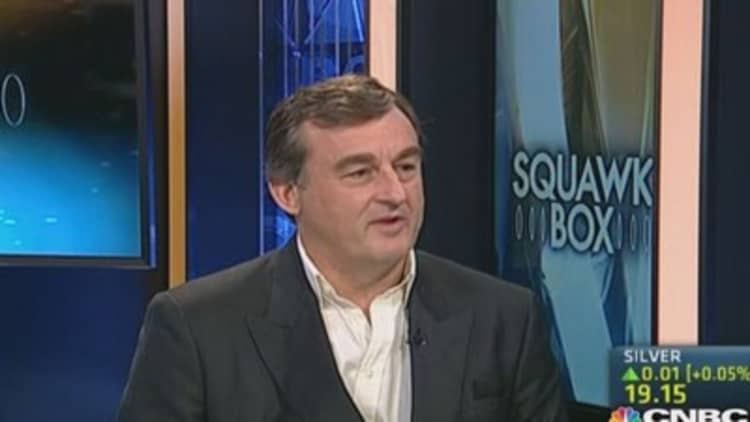A revised reading on Japan's gross domestic product (GDP) showed the economy contracted an annualized 7.1 percent in the second quarter, worse than initial estimates of 6.8 percent as a nationwide consumption tax that took effect in April dragged on its recovery.
This marked the biggest contraction since the first quarter of 2009, when the global financial crisis hit Japan's export sector, and was worse than expectations in a Reuters poll for a revised reading of 7.0 percent.
On a quarterly basis the economy contracted 1.8 percent, wider than an initial reading of 1.7 percent.
Read MoreAbenomics approaches a moment of reckoning
"While the headline [quarterly] figure was in line with expectations, the details were rather discouraging: non-residential investment was revised from a 2.5 percent [quarterly] fall to a 5.1 percent [quarterly] plunge. The only reason why overall demand didn't decline even more sharply was that inventories bolstered output by 1.4 percentage points instead of the initially estimated 1.0," Marcel Thieliant, Japan economist at Capital Economics, said in a note.
"Looking ahead, output will probably rebound only modestly in the third quarter. Industrial production was still 2 percent below the Q2 average in July, and we have yet to see a turnaround in capital spending," Thieliant added.
Markets were little changed on the news. The Nikkei snapped their two-day losing streak to breachthe 15,700 level while then yen traded steady against the U.S. dollar.

The revised reading could boost calls for the BOJ to consider easing action in the near term. The central bank has not introduced further stimulus since its unprecedented monetary easing announced last April.
Prime Minister Shinzo Abe is trying to engineer a sustainable recovery for the economy while keeping the country's mounting debt, which is among the highest in the developed world, in check. Japan's debt-to-GDP ratio currently stands at north of 240 percent.
Read MoreJapan inflation rises in July but remains short of BOJ target
"This is the dilemma facing the BOJ (Bank of Japan) because when you look at personal savings, they are about $10 trillion a year which equates to a third of current income tax levels. So clearly there aren't enough excess cash in the system to fund that kind of consumption tax or increase in income tax," said Robert Medd, partner at GMT Research.

Medd adds that Japan's key headwind is not about growth but the struggle to generate profit.
"Japan's problem is not growth or the lack of it; Japan's problem is the lack of profitability and wealth creation," said Medd. "They have a massive structural budget deficit and unfortunately with that they need to somehow raise revenue or cut spending. To actually bridge the deficit, they will need to take corporate personal income tax up 100 percent from where they are today or alternatively, the consumption tax which needs tripling from today - which is not ideal."
Read MoreJapan'seconomy is stuck in 'no man's land': analyst
In other data, Japan's current account surplus swung back into the black in July. The surplus rose to 416.7 billion yen ($3.96 billion), below Reuters' estimates for a surplus of 444.2 billion yen and up from a deficit of 399.1 billion yen in June.
Capital Economics' Theliant believes the surplus will widen further with imports remaining sluggish as exports rebound.
"The adjusted current account has now been in surplus for four consecutive months, which indicates that the deficits recorded earlier this year were an aberration caused by the surge in domestic demand ahead of the sales tax hike," Thieliant said.
"The export climate index remained strong in August, while overseas machinery orders have surged. Exports should therefore start to recover in coming months, so the trade shortfall should narrow," he added.

